|
Elegy, a beautiful work by composer and organist Brenda Portman will begin our morning Totenfest and All Saints Sunday observances. Brenda was a colleague of mine at the Cincinnati College-Conservatory of Music and currently an Adjunct Organ Instructor at Xavier University and Resident Organist at Hyde Park Community United Methodist Church of Cincinnati. An elegy in musical terms is a somber or ethereal work similar to the literary meaning, a lament for those that have passed on. A toccata on the hymn tune THINE by James Biery serves as the postlude. Thine the Amen Thine the Praise was composed by Carl Schalk and written by Lutheran pastor Herbert Brokering. This words from the last verse is especially poignant this Sunday, "Thine the glory in the night No more dying only light...Thine the splendor Thine the brightness only Thee only Thee." The Chancel Choir will offer Celtic Song of Farewell, arranged by Steve Schaubel from a choral setting by Jeffrey Honoré, at the 11:00 service. The text is based on In Paradisum (Latin for 'Into Paradise'), the antiphon traditionally sung by the choir during a Requiem Mass as the body is taken from the church. The tune is set to the ancient Irish melody Londonderry Air, commonly known as "Danny Boy".
At 6:00, we will present a special Evening Prayer service inspired by the Anglican Evensong tradition. The original service is compiled from the traditional offices of Vespers and Compline with rubrics already enshrined in The Book of Common Prayer of 1549. Evensong is a service of sung prayer which, offered daily, the entire psalter could be read in a month's time and the entire bible in a year. In gathering together this Sunday evening, we join our voices in prayer to thank God for the day that has passed and ask for safekeeping through the night as we also remember those that have passed on. Evensong is also known for its embrace of quality music-making and the tradition of composers creating repertoire specifically for this liturgy. The two New Testament canticles Magnificat (Song of Mary, Luke 1.46-55) and Nunc dimitttis (Song of Simeon, Luke 2.29-32) have traditionally been sung at these evening services. The Chancel Choir will offer Magnificat and Nunc Dimittis in G Major by renowned Anglican composer Charles Villiers Stanford as well as present an Anglican Chant of Psalm 146. The anthem during communion will be Lux aeterna from Maurice Duruflé's Requiem (1948). The movement is intended to be sung during communion in a traditional Requiem Mass and states these words of comfort, "May light eternal shine upon them, O Lord, with thy saints for evermore." Organist Hannah Walters, Administrator of Music and Education at Peace With Christ Lutheran Church in Fort Collins, will accompany the choir. Arrive early for a time of reflection and meditation as I offer Widor's Choral from his tenth organ symphony, the Symphonie romane. Choral, as is the entire symphony, is based on the Gregorian Chant Haec Dies (translated as 'This Day'), an antiphon prescribed for the Easter Day Gradual and based on Psalm 118 (This is the day the Lord has made). Organist Hannah Walters will lead us joyfully into the night with Dietrich Buxtehude's Prelude, Fugue, and Chaconne.
0 Comments
The music of Johann Sebastian Bach (1685-1750) will be celebrated at all three services this Consecration Sunday and 501st year since the Reformation. Bach is not only one of the greatest composers who has ever lived but was a devout man of faith whose music exudes spirituality and his dedication to expressing the Divine. The oft-penned signature of Bach's works with the phrase Soli Deo Gloria (Glory to God alone) made his compositional intentions even more clear.
There will be an extended prelude of approximately ten to fifteen minutes before each service representing Bach's output in chamber, vocal, and organ music. The morning program will begin with the organ chorale prelude Wir glauben all' an einen Gott, BWV 680 (We all believe in one God) from the Clavier-Übung III published in 1739. The opening fugue subject is based on the first line of the 1524 Martin Luther hymn, a paraphrase of the Nicene Creed. The intricate fugal writing for manuals is interspersed with a bold ascending and descending pedal line often interpreted as representing faith in God. This similar approach is taken in later Credo movements as well, such as in Bach's Mass in B Minor (1749). An excerpt from Johannes-Passion, the aria Ich folge dir gleichfalls (I follow you likewise with happy steps) will be offered by soprano Blair Carpenter, cellist Lisa Eakins, flutist Aaron McGrew and myself on continuo. Lastly, cellist Lisa Eakins and I will play the Adagio and Allegro moderato movements (I and IV respectively) from Sonata No. 1 in G Major, BWV 1027. The work is one of three sonata settings originally scored for viola de gamba and harpsichord dating to the late 1730's or early 1740's during Bach's tenure at the Thomaskirche in Leipzig. At the 11:00 a.m. service, the Chancel Choir will sing two excerpts from Cantata No. 147 Herz und Mund und Tat und Leben (Heart and mouth and deed and life) of 1723 employing the familiar chorale tune often translated as Jesu, Joy of Man's Desiring. I will be joined by cellist Lisa Eakins in the basso continuo accompaniment. And for the Postlude, I will offer Bach's Prelude in A Minor, BWV 543 (a virtuosic and slightly 'sinister' piece...very apropos for the days before Halloween!). The Prelude is an early work, composed around the time of his tenure as court organist to the Duke of Saxe-Weimar from 1708–1717. It bears the mark of stylus phantasticus, the North German organ composition style characterized by a free, rhapsodic, and dramatic approach, owing a great deal of inspiration to Bach's mentor, Dietrich Buxtehude. The Bach celebration continues at 6:00 p.m. with soprano Blair Carpenter, harpist Alaina Borgers, guitarist Alan Skowron, and flutist Rebecca Quillen joining. During the Prelude, a setting of Arioso for harp and flute, based on the well-known opening Sinfonia of Bach's 1729 cantata, will be presented as well as excerpts from Suite in C Minor. BWV 997, originally composed for lute and harpsichord. Selections for organ and chamber music will be reprised from the morning services as well. The morning services begin with Cantabile from the 1883 Three Pieces collection by César Franck. The musical term cantabile is Italian for 'singable' and refers to the lyrical oboe melody heard throughout the work. The hymn tune Union Seminary was composed by Harold Friedell in 1957 and is the basis for his choral anthem, Draw Us in the Spirit's Tether. A setting by prolific Lutheran composer Paul Manz will be heard during the early morning service communion time. A joyful rendering of Belgian composer Flor Peeters' Festal Voluntary closes the services.
At 11:00, the Chancel Choir offers a setting of the early American folk hymn How Firm A Foundation by Dan Forrest. The anonymous tune PROTECTION first appeared in Joseph Funk's A Compilation of Genuine Church Music in 1832 and later in Southern Harmony and Sacred Harp. The text was also written somewhat anonymously having been attributed to in John Rippon's A Selection of Hymns (1787) as simply by "K—". At 6:00, Bobby is joined by cantor Blair Carpenter, bassist Peter Strening, and flute player Doti Strening for an inspired service of worship and song. Organ works by 20th century French composer Jean Langlais will be presented this Sunday autumn morning. Blind from the age of two, Langlais still managed to acquire great acclaim as an organ and choral composer, improviser, and concert artist. He was appointed to the Basilica of Sainte-Clotilde, Paris in 1945, a post he kept for over forty years whose predecessors included César Franck and Charles Tournemire. In the same year, his collection of Nine Pieces was published, including several miniatures, "songs," depicting specific affects such as sorrow and quiet joy. This Sunday, we will hear the plaintive and otherworldly Song of Peace and the mystical yet triumphant Song of Joy. For the 9:00 a.m. communion time, a selection from Langlais' 24 Pieces (1934-36), Prélude modal. The music of Jean Langlais is characterized by his love of Gregorian Chant and complex striking harmonies with shifting modalities, as will be heard in the previous selection. The Chancel Choir will offer another "song" as well, A Song of Community by John Ferguson. Conducted by Amy Welsh, the work is a five-verse hymn anthem (tune of Wareham), accompanied by organ and The Plymouth Ringers, which will culminate with the choir and you, the congregation, singing the final verse together. Additionally, the Youth Bells will offer Arnold Sherman's Jubilee! led by Director Kathee Houser.
At 6:00 p.m., Bobby is joined by the now familiar talents of Blair Carpenter (cantor), Alan Skowron (guitar), and Peter Strening (bass) for another excursion into this early evening alternative worship experience. On this World Communion Sunday, we will hear and sing hymns, songs, anthems, and music of the Bread and Cup from all across the earth, from places like Scotland, Jamaica, Germany, and our own North America.
J.S. Bach composed the chorale prelude "Schmücke dich, o meine Seele" (Adorn yourself, O dear soul) in the last ten years of his life in Leipzig. Based on the 1649 melody by prolific Lutheran hymn writer Johann Cruger, this eucharistic hymn setting employs just four voices: a pedal line, a ritornello in the middle voices, and the soprano melody played on a light reed stop, "adorned" in a French ornamentation style. Peace and serenity exudes throughout this ode to the sacrament of communion. "Panis Angelicus" (Bread of Angels) is the penultimate portion of the 13th century hymn "Sacris Solemnis," authored by Thomas Aquinas for the Feast of Corpus Christi. Many musical settings have been composed on this text, most famously by César Franck in 1872. Soprano Blair Carpenter will offer this setting during the 9:00 a.m. service communion. During the 11:00 a.m. communion, the Chancel Choir will sing the last movement of Bob Chilcott's "A Little Jazz Mass" set to the ancient eucharistic text, "Agnus Dei (Latin for Lamb of God). Fanfare" by 19th century Belgian-French composer Jacques-Nicolas Lemmens will close the morning services on a joyful note. Bobby Brannock and cantor Laura Nelson will offer meditative music for our first Sunday of the month contemplative service tradition at 6:00 p.m. |
Details
|
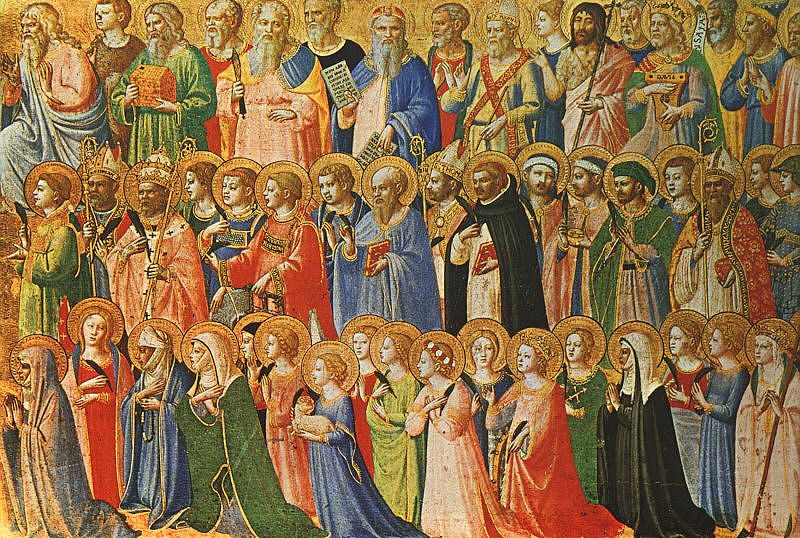
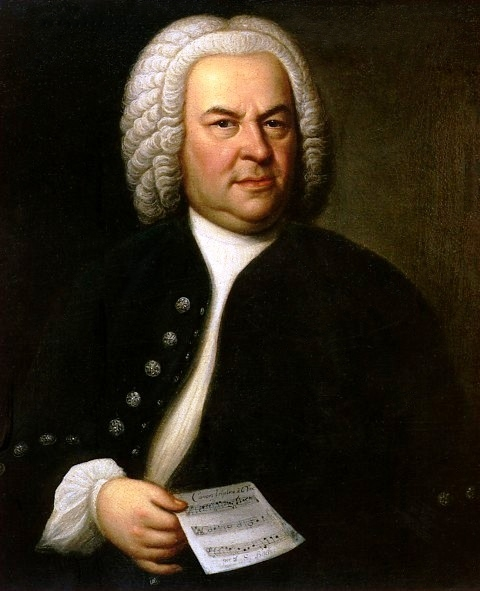
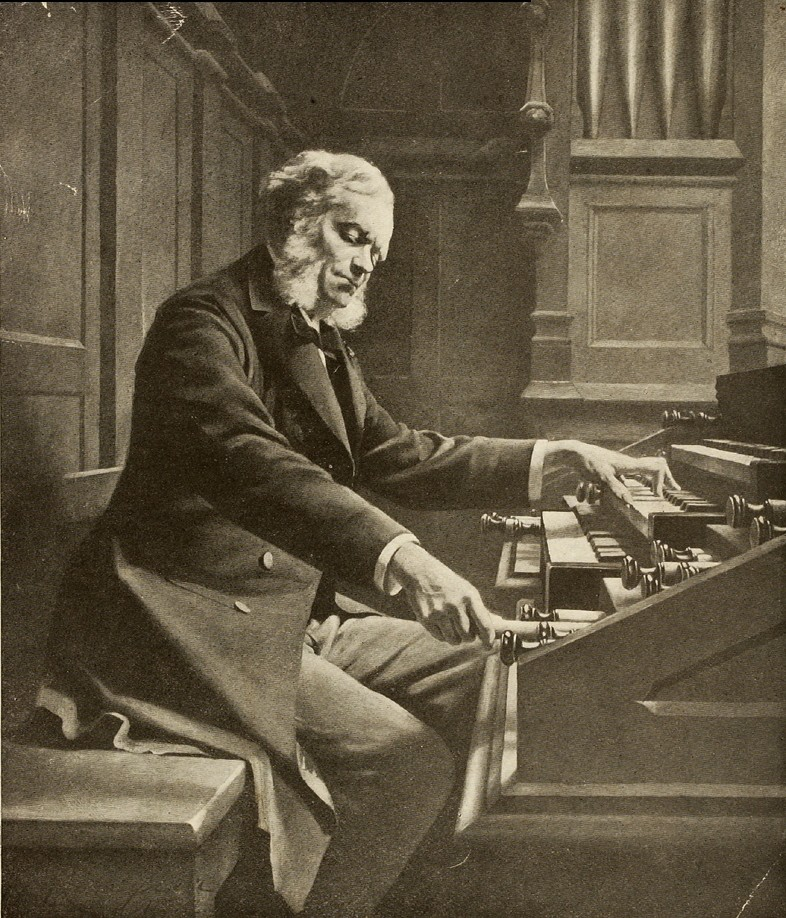
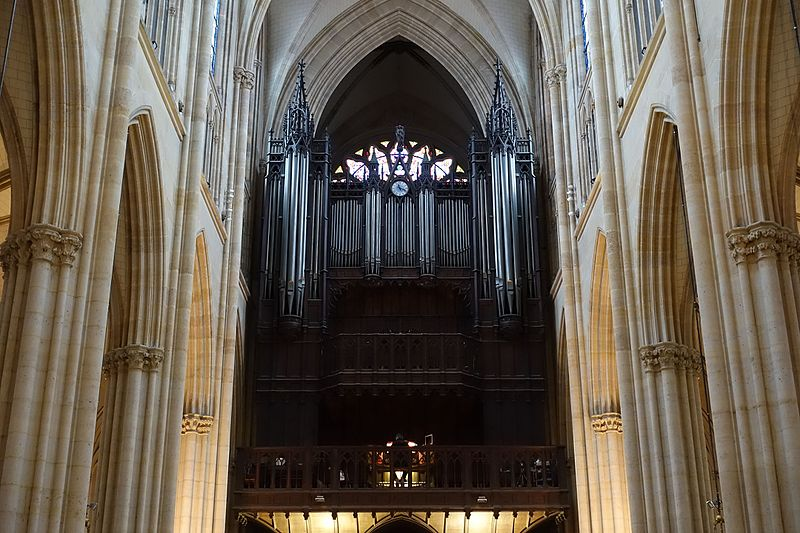
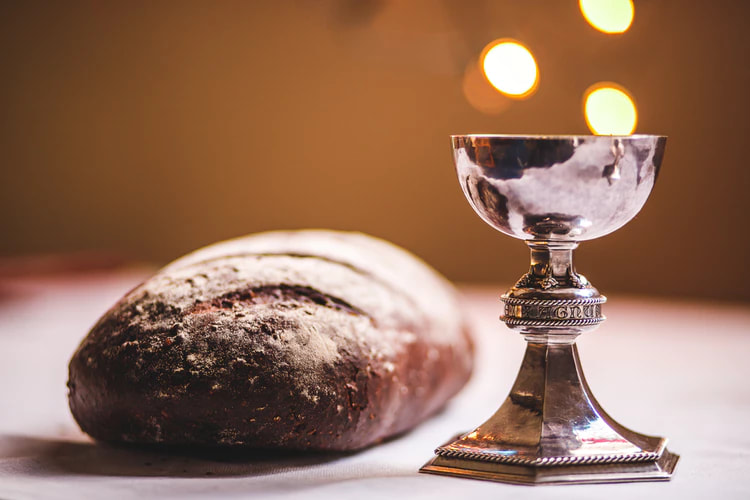

 RSS Feed
RSS Feed